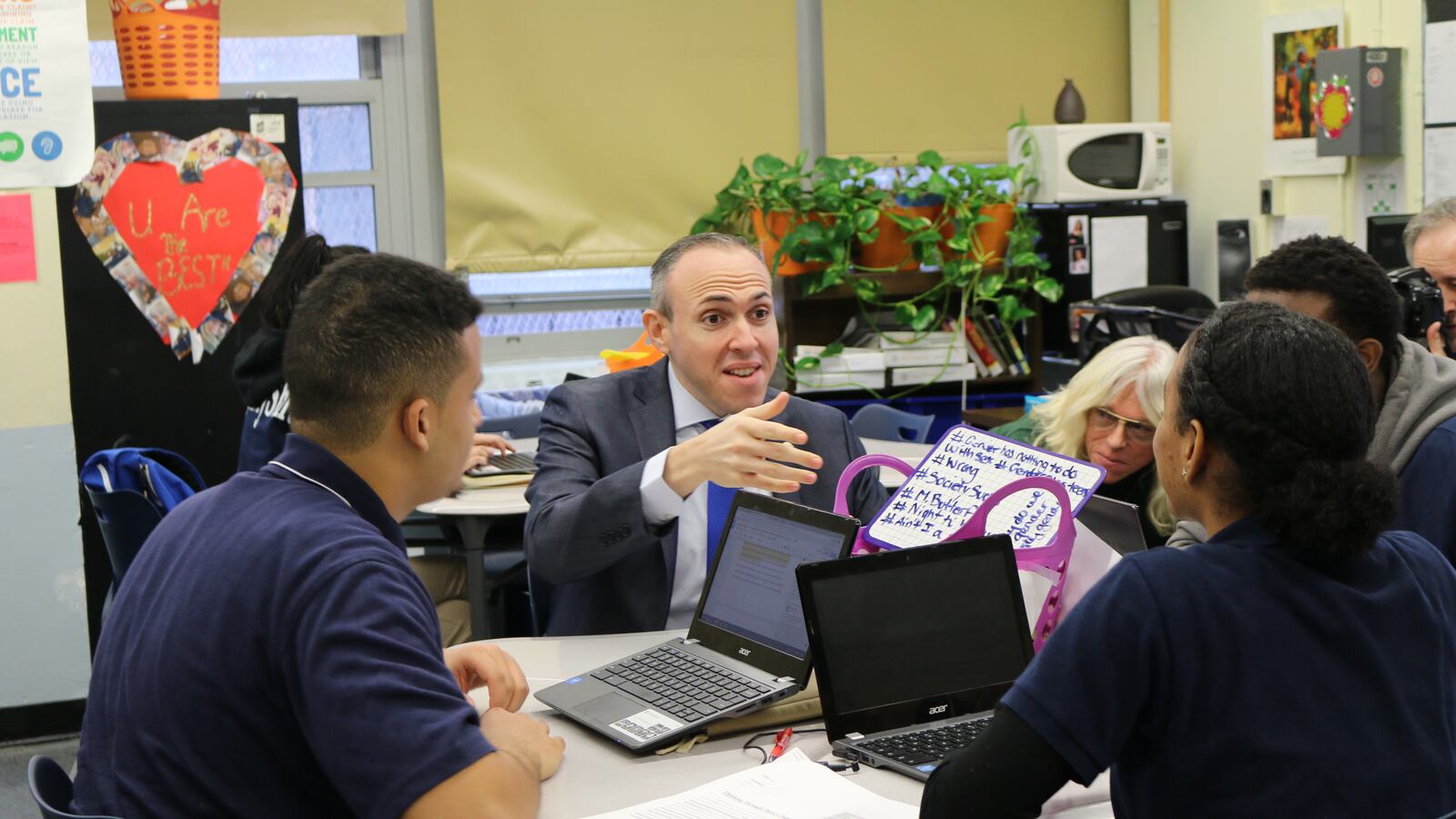As Mayor Bill de Blasio prepares to choose a new leader for the nation’s largest school system, no one is watching that decision more closely than Mark Treyger.
Treyger, a former history teacher who was recently named chairman of the city council’s education committee, will be responsible for holding the new schools chief accountable. In that role, the Brooklyn Democrat plans to support many of the de Blasio initiatives that the next chancellor will carry out — from expanded preschool to more social services in schools.
But Treyger also has some tough questions for the mayor and his yet-to-be-named schools chief. How do they plan to reduce school segregation? What is the mayor’s overarching vision for the school system? And must he choose the chancellor behind closed doors?
“I do believe that the best decisions are the ones where you involve critical stakeholders,” Treyger told Chalkbeat in a recent interview.
Below are some of the education issues that Treyger said he’ll be paying close attention to as de Blasio prepares to hand the reins of the school system over to a new chancellor.
1. What’s the larger vision for the school system?
Free pre-K has been de Blasio’s signature education accomplishment, but he’s also rolled out an assortment of lesser-known initiatives.
Many of them fall under the banner of “Equity and Excellence for All,” including efforts to make Advanced Placement classes available to all high-school students by 2021 and computer-science courses available to all students by 2025. Some critics have pointed out that many of those programs won’t be fully phased in until after de Blasio leaves. Others — including Treyger — wonder what they all add up to.
“It’s been a commendable beginning,” he said. “But I’m looking for a larger vision.”
On a practical level, Treyger also questioned whether the education department has laid the groundwork to roll out some of those initiatives. He said will work to make sure all schools have the infrastructure they need, such as reliable internet service and appropriate technology, to make sure they can offer courses like computer science.
“How can you have a conversation about computers,” he said, “when the lights don’t even work?”
2. Why not make the chancellor search public?
De Blasio has insisted that he won’t “crowdsource” the search for a new schools chief — despite calls for public input from a chorus of parents and experts.
Treyger thinks a compromise is possible: Let the mayor choose chancellor candidates, but then give the city council the power to vet the candidates during public hearings before signing off on the mayor’s pick.
“I believe that we should be open to moving towards a process where the city council has advise-and-consent power,” he said, adding that the legislature should consider altering the mayoral control law next year to give city lawmakers that power.
3. How serious is this administration about tackling school segregation?
School integration was not on de Blasio’s agenda when he came into office.
But after a grassroots movement of parents and educators called on the mayor to address the school system’s severe racial and socioeconomic segregation, he took some small steps in that direction. The education department released a “school diversity” plan last year, and has launched an integration-aimed admissions program at a few dozen schools and in one Manhattan district.
However, Treyger thinks the city can and must do more — including aligning school enrollment, zoning, and housing policies to work towards the same goal of integration.
“If we’re serious about addressing [segregation], we have to know the difference between managing the problem and actually solving it,” he said. “I think that we’ve seen, thus far, more management than actually solving.”
4. What’s next for the Renewal program?
The mayor’s $582 million “Renewal” program for struggling schools is at a crossroads.
De Blasio made a big bet that his administration could quickly rehabilitate 94 low-performing schools by giving them extra social services and academic support. But the program has achieved mixed results, and now the education department is planning to shutter eight Renewal schools next year — part of the largest round of school closures under de Blasio.
Meanwhile, another 21 schools that officials say have made significant progress will slowly transition out of the program.
Treyger’s first oversight hearing as education chairman, set for next week, will focus on the program. He has spent the last few weeks visiting schools in the program and says he wants to understand what the city’s future plans are for supporting those schools. And he wants to be sure that if struggling schools improve enough to leave the program, their extra support won’t suddenly be cut. (The education department has committed to maintaining the full budget allocation they receive through the city’s funding formula and extra social services for the 21 schools that are improving enough to leave the program.)
“We will not be happy,” he said, “if we learn that a school that is improving or turning things around — that its reward is a funding cut.”

